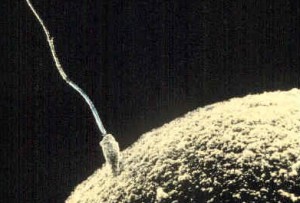Sperm Donor Dad?
 Some men are used only for their sperm. This should not come as a shock to anyone. Changes in attitudes towards physical procreation aided by modern science have made this more common and acceptable. But it’s the psychological part that needs exploration and understanding.
Some men are used only for their sperm. This should not come as a shock to anyone. Changes in attitudes towards physical procreation aided by modern science have made this more common and acceptable. But it’s the psychological part that needs exploration and understanding.
There are two types of sperm donor Dads that come to mind. The first type are men who ‘willfully’ intend to create a baby without parenting the baby. The second are men who are ‘chosen’ to create a baby by a woman who intends to have the baby without requiring or requesting the participation of the father.
Let’s talk about the mind set and psychological aspects of both types. Let’s begin with, what does it take to intentionally have a baby without assuming responsibility for that baby? I’ll assume that a percentage of men in this situation are aware that they would offer little or nothing to the baby at the time of conception and early development.
So they opt out shortly after they perform their biological responsibility. In many instances the limitations I am talking about indicate a considerable amount of immaturity. Too much in fact to successfully parent a child. In many instances, the decision not to be involved is a form of limited loving. If you know what you’ll offer someone is no good for him or her, and you make yourself absent to protect that person, you are loving him or her in a certain limited way.
In a number of instances I have encountered or heard about men who were not emotionally and physically present for a child’s development, but tried to come into their offspring’s life later on in adulthood. Of course, this type of circumstance possesses it’s own difficulties usually in the form of resentments and hurt for abandonment that are blocking the way in. In some instances, a biological father is capable of getting into a son’s or daughter’s life now as an adult and have a relatively close relationship once the kinks are worked out. There is no doubt about it, this involves a bit of dedicated work that can be painful and unpredictable.
Regardless, most people have a need to know who their ‘biological’ parents are. The absence of this information can feel like something is missing. And I don’t really believe it when a person tells me that he or she doesn’t care. I usually wind up thinking the curiosity and need to know are probably hidden somewhere behind layers of hurt, resentment, and loss. The point is, knowing who your biological parents are is a piece of a puzzle on the way to finding out who you are as an unique individual.
If you’re a man whose been ‘chosen’ to father a child without responsibility for that child, we might be talking about a form of commerce. Something given for something taken. But what? If it’s money that’s easy, and we can stop there. I give you my sperm and you pay for it. Is this a form of prostitution, maybe. Anything can be sold. And once it’s paid for, most people looking to make a deal can stop thinking about it at that point.
I suspect a man in this kind of situation would probably consider it easy money and look to repeat the experience as many times as possible. But what about men who aren’t paid? Could it be ‘ego?’ I’m being selected by this woman who wants a baby because she considers me intelligent, handsome, or in possession of some other quality worth passing on to her child. This makes me feel good about myself, at least for a little while, right? So in this case the motive is self-esteem.
But how about men who are deceived into the provision of sperm without intention to co-parent the outcome? I can feel bad for them. Driven by the need for sexual gratification, they forget everything else temporarily. To what extent do they think about a child after the fact? Are they fighting for visitation rights? Maybe that comes later when they have grown enough to value what they’ve created. In my opinion, what we get from our biological parents is probably much more than we understand at this point in time. This is not to say they simply make us who we are.
No, because we are all unique individuals there is always something about us that doesn’t come from or belong to them. It’s up to each and every individual to find out what that is. Beyond that, I suspect that the ‘raw materials’ we get are both mental and physical in form. We shape those raw materials into significant parts of ourselves. This is the part of us that comes from other people, from our so called biological roots. For those of you who have placed a value on self-knowledge, knowing who your biological parents are/were will be an important part of knowing who you are and who you’re not.
Comments?
Dr. Thomas Jordan, clinical psychologist, author of Learn to Love: Guide to Healing Your Disappointing Love Life. Need help fixing your disappointing love life? Confidential Love Life Consultations available by phone, inquire at drtomjordan@lovelifelearningcenter.com.
